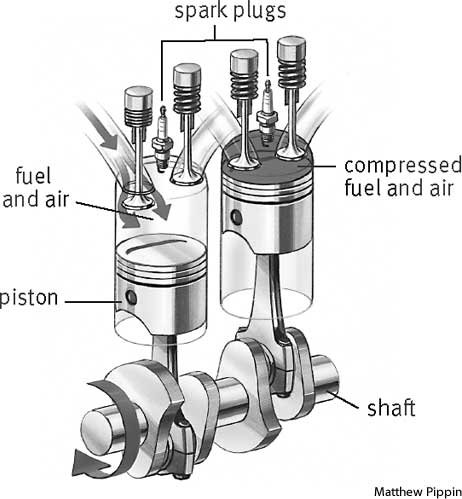What is octane number? Please elaborate. Thanks!
1 Answer
An octane number (or rating, as it is more commonly known) is a scale used to determine the compression that a substance can be subjected to before igniting.
Explanation:
In an internal combustion engine, fuels are put under pressure (from a movement of a piston within a cylinder).

When the pressure becomes very high, some fuels ignite and thus combust. This combustion causes an expansion of gas and thus forces the piston down to oppose the increase in pressure (causing a rotary movement of the crank shaft in an engine and thus creating kinetic energy).
Different fuels ignite at different pressures. Octane number or rating is used to describe the pressure at which a fuel will ignite.
The higher the octane rating, the higher the pressure a fuel can withstand before igniting. The lower the octane rating, the lower the pressure a fuel can withstand before igniting. In order to maximise the effect of the increase in gas pressure upon ignition, the piston needs to be as high up in the cylinder as possible - thus requiring a fuel that can withstand a high pressure before igniting and 'wasting' part of the pistons movement within the cylinder.
In petrol (gasoline) engines, the fuel needs to be ignited by a spark at a pre-determined point with respect to the pistons position within a cylinder. If a fuel with a too-low octane rating is used, then the fuel will pre-detonate (ignite before the spark fires and ignites the fuel) and will result in a very low-power stroke and thus the engine would be highly inefficient. This is why octane ratings are very useful for ensuring the appropriate fuel is used for a given application.
Because of this, high octane fuels are preferred to low octane fuels for increased power output. They are, however, more expensive.

